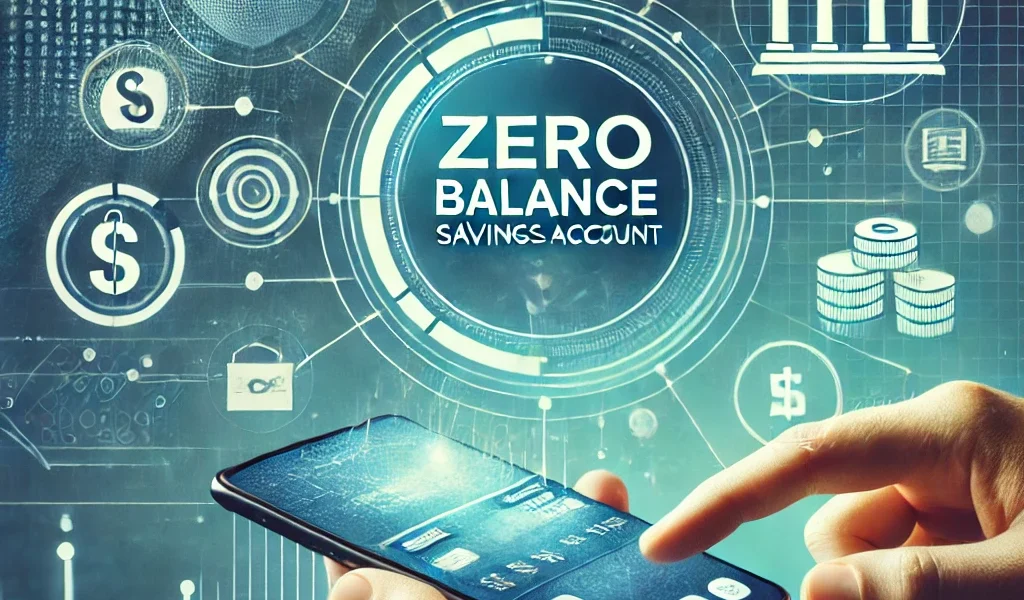A zero balance savings account is a type of bank account that does not require the account holder to maintain a minimum balance. It is particularly beneficial for students, salaried individuals, and low-income groups who may not always be able to maintain a fixed minimum amount. However, like any financial product, zero balance savings accounts come with their own set of advantages and drawbacks. This blog explores the pros and cons of zero balance savings accounts to help you make an informed decision.
Pros of Zero Balance Savings Accounts
1. No Minimum Balance Requirement
One of the biggest advantages of a zero balance savings account is that you do not have to worry about maintaining a minimum balance. This makes it ideal for individuals who want to use their funds without restrictions.
2. Free Debit Card and Online Banking Services
Most banks offer free debit cards, internet banking, and mobile banking services with zero balance accounts. These features allow account holders to manage their finances conveniently from anywhere.
3. Easy Account Opening Process
Opening a zero balance savings account is usually hassle-free and can often be done online with minimal documentation. Some banks even offer instant account opening through their mobile apps.
4. No Penalty Charges
Since there is no requirement to maintain a minimum balance, there are no penalties or charges for falling below a certain amount. This makes it a stress-free option for individuals who frequently withdraw funds.
5. Ideal for First-Time Account Holders
For students, young professionals, and low-income individuals, a zero balance savings account serves as a great way to start banking without financial constraints.
6. Government-Backed Benefits
Some zero balance accounts, like Jan Dhan accounts in India, come with government-backed benefits such as accident insurance, overdraft facilities, and subsidies.
Cons of Zero Balance Savings Accounts
1. Limited Features Compared to Regular Savings Accounts
While zero balance accounts offer basic banking services, they may not provide premium benefits like higher withdrawal limits, personalized banking, or additional rewards.
2. Lower Interest Rates
Some banks offer lower interest rates on zero balance savings accounts compared to regular savings accounts. If you want to earn a higher return on your savings, a traditional savings account might be a better choice.
3. Restricted Transactions
Many zero balance savings accounts have restrictions on the number of free withdrawals, deposits, or ATM transactions per month. If you exceed these limits, banks may charge extra fees.
4. Limited Fund Transfer Facilities
Certain zero balance accounts may have restrictions on fund transfers, especially for high-value transactions. This could be inconvenient for individuals who frequently transfer money.
5. Potential for Hidden Charges
While banks advertise zero balance accounts as free, some may impose hidden charges for specific services such as SMS alerts, checkbooks, or statement requests. Always read the terms and conditions carefully.
6. Eligibility Restrictions
Some zero balance savings accounts are only available to specific categories of individuals, such as students, pensioners, or low-income groups. If you don’t meet the criteria, you may not be eligible to open such an account.
Who Should Opt for a Zero Balance Savings Account?
A zero balance savings account is ideal for:
- Individuals who want a hassle-free banking experience without maintaining a minimum balance.
- Students, first-time account holders, and individuals with irregular income.
- People who use their account primarily for basic transactions such as bill payments and online transfers.
- Salaried individuals whose employers deposit salaries into a zero balance account.
However, if you require advanced banking features, higher interest rates, and unlimited transactions, a regular savings account may be a better choice.
Final Thoughts
Zero balance savings accounts offer financial flexibility, especially for those who do not want to worry about maintaining a minimum balance. However, it is essential to understand the limitations, such as lower interest rates and potential transaction restrictions. Before opening a zero balance savings account, compare different banks, read the terms carefully, and choose an account that best fits your financial needs.
By making an informed decision, you can enjoy the benefits of hassle-free banking while avoiding any unexpected charges or limitations.




